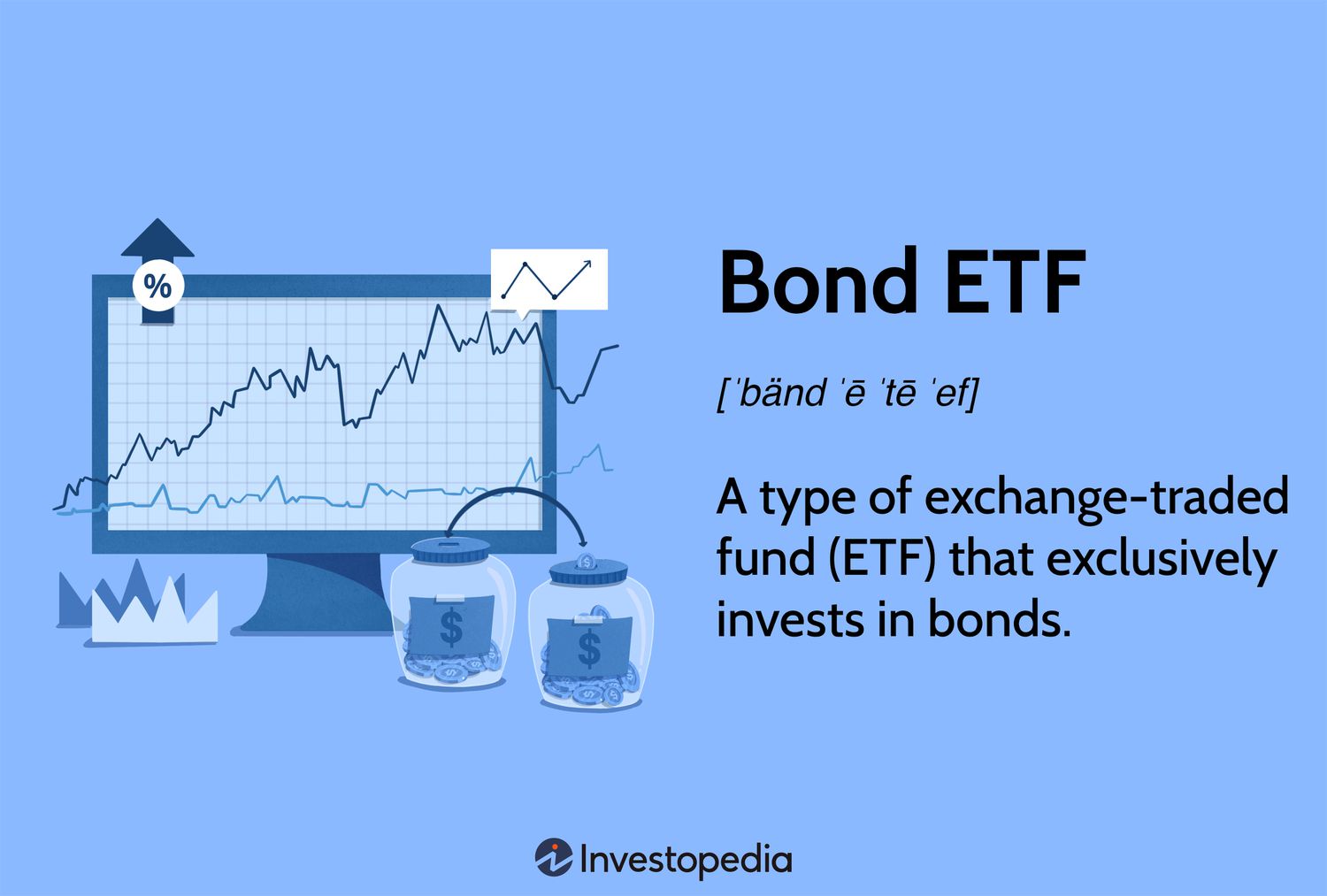Taiwanese Investors' US Bond ETF Pullback: Reasons And Implications

Table of Contents
Rising US Interest Rates and Their Impact on Bond Yields
The inverse relationship between interest rates and bond prices is a fundamental principle of finance. When the Federal Reserve (Fed) raises interest rates, newly issued bonds offer higher yields, making existing bonds with lower yields less attractive. This has been a significant factor in the Taiwanese investors' US Bond ETF pullback. The Fed's aggressive interest rate hikes throughout 2022 and into 2023 have driven up US Treasury yields, impacting the return on investment for US Bond ETFs.
- Impact on bond valuations: Higher yields lead to lower bond prices, resulting in capital losses for investors holding these ETFs.
- Reduced returns compared to previous periods: The attractiveness of US Bond ETFs has diminished as their returns have fallen short of expectations due to rising interest rates.
- Increased risk perception among investors: The volatility introduced by rising interest rates has increased the perceived risk associated with US Bond ETFs.
Data reveals a steepening yield curve, with longer-term Treasury yields increasing more rapidly than short-term yields. This shift reflects investor expectations of future interest rate hikes and has contributed to a negative sentiment towards longer-duration bond investments, impacting the appeal of US Bond ETFs to Taiwanese investors seeking stable returns. The interplay between interest rate hikes, bond yields, and US Treasury bonds is directly linked to the reduced attractiveness of US Bond ETFs for Taiwanese investment portfolios.
The Strengthening Taiwanese Dollar (TWD) and Currency Risk
The appreciation of the Taiwanese dollar (TWD) against the US dollar (USD) further complicates the equation for Taiwanese investors in US dollar-denominated assets. As the TWD strengthens, the value of USD-denominated returns diminishes when converted back to TWD. This currency exchange risk significantly impacts the overall investment profitability.
- Exchange rate fluctuations and their impact on capital gains/losses: Fluctuations in the TWD/USD exchange rate can dramatically affect the realized gains or losses when Taiwanese investors convert their USD returns back to TWD.
- Hedging strategies employed by Taiwanese investors to mitigate currency risk: Some investors employ hedging strategies, such as forward contracts or options, to mitigate the impact of currency fluctuations. However, these strategies come with their own costs and complexities.
- The role of currency forecasts in investment decisions: Currency forecasts play a critical role in investment decisions. Unfavorable projections of the TWD/USD exchange rate might encourage investors to reduce their exposure to US dollar-denominated assets, including US Bond ETFs.
The management of currency exchange rate risk and the strategic use of hedging strategies are crucial considerations for Taiwanese investors navigating the complexities of investing in US Bond ETFs.
Geopolitical Uncertainty and Global Economic Slowdown
Geopolitical uncertainty and concerns about a global economic slowdown have further dampened investor enthusiasm for US Bond ETFs. The ongoing Russia-Ukraine war, heightened US-China tensions, and persistent inflation globally impact investor confidence.
- Impact of inflation and recessionary fears on investment choices: Fear of recession and persistent inflation are pushing investors towards more defensive investment strategies, potentially away from US Bond ETFs.
- Diversification strategies adopted by Taiwanese investors: Many Taiwanese investors are diversifying their portfolios to reduce exposure to any single market or asset class, including US bonds.
- Shifting investment preferences toward other asset classes: Some investors are shifting their focus towards alternative asset classes perceived as less vulnerable to global economic headwinds.
The perception of increased geopolitical risk and anxieties surrounding the global economic outlook are significant drivers influencing the Taiwanese investors' reduced appetite for US Bond ETFs. The role of US bonds as safe-haven assets is being reevaluated in this volatile environment.
Implications for Taiwanese Investors and the US Bond Market
The Taiwanese investors' pullback from US Bond ETFs has significant implications for both sides of the transaction. For Taiwanese investors, this might necessitate portfolio rebalancing and could potentially lead to realized losses depending on their entry and exit points. For the US bond market, reduced demand from a significant investor base like Taiwanese investors could affect liquidity and pricing of US Bond ETFs.
- Long-term implications for Taiwanese investment strategies: The pullback necessitates a reassessment of long-term investment strategies, encouraging a broader search for alternative opportunities.
- Potential opportunities in other markets: The shift may open up investment opportunities in other global markets perceived as less risky or more rewarding.
- Impact on US bond market stability: While the impact might not be immediately catastrophic, sustained outflows from major investor groups could influence the stability of the US bond market.
Effective portfolio management and careful evaluation of investment risk are crucial in navigating this changing investment landscape.
Conclusion: Taiwanese Investors' US Bond ETF Pullback: A Call to Action
The pullback of Taiwanese investors from US Bond ETFs is a complex phenomenon driven by several interconnected factors: rising US interest rates, the strengthening TWD, geopolitical uncertainty, and the global economic slowdown. These factors have significantly impacted both the returns and risk perception associated with US Bond ETF investment. The implications are far-reaching, influencing both Taiwanese investment strategies and the liquidity of the US bond market. The future trajectory of Taiwanese investment in US Bond ETFs remains uncertain, highlighting the need for a careful review of existing investment strategies.
We urge investors to carefully assess their current portfolios and consider diversifying their holdings to mitigate risk. The changing global economic landscape demands a proactive approach to portfolio diversification. Don't hesitate to seek professional financial advice to navigate these complexities and explore alternative investment options that align with your risk tolerance and long-term financial goals. A thorough review of your investment strategy is crucial in today's volatile markets.

Featured Posts
-
 Jokics Birthday Westbrook And The Nuggets Heartfelt Tribute
May 08, 2025
Jokics Birthday Westbrook And The Nuggets Heartfelt Tribute
May 08, 2025 -
 Toronto Housing Market Report 23 Sales Decline 4 Price Reduction
May 08, 2025
Toronto Housing Market Report 23 Sales Decline 4 Price Reduction
May 08, 2025 -
 Famitsus Most Wanted Games Dragon Quest I And Ii Hd 2 D Remake Leads March 9 2025
May 08, 2025
Famitsus Most Wanted Games Dragon Quest I And Ii Hd 2 D Remake Leads March 9 2025
May 08, 2025 -
 Lotto Plus 1 And 2 Results Find The Latest Winning Lotto Numbers
May 08, 2025
Lotto Plus 1 And 2 Results Find The Latest Winning Lotto Numbers
May 08, 2025 -
 Lahwr Ahtsab Edaltwn Ky Tedad Myn Kmy Athrat W Tjzyh
May 08, 2025
Lahwr Ahtsab Edaltwn Ky Tedad Myn Kmy Athrat W Tjzyh
May 08, 2025
Latest Posts
-
 Everything You Need To Know Before Andor Season 2 Airs
May 08, 2025
Everything You Need To Know Before Andor Season 2 Airs
May 08, 2025 -
 Andor Season 2 What To Remember Before Watching
May 08, 2025
Andor Season 2 What To Remember Before Watching
May 08, 2025 -
 Andor Book Scrapped Ai Fears Halt Star Wars Publication
May 08, 2025
Andor Book Scrapped Ai Fears Halt Star Wars Publication
May 08, 2025 -
 Behind The Scenes Of Andor Cast Discusses The Rogue One Prequels Conclusion
May 08, 2025
Behind The Scenes Of Andor Cast Discusses The Rogue One Prequels Conclusion
May 08, 2025 -
 Star Wars Andor Book Canceled Due To Ai Concerns
May 08, 2025
Star Wars Andor Book Canceled Due To Ai Concerns
May 08, 2025
